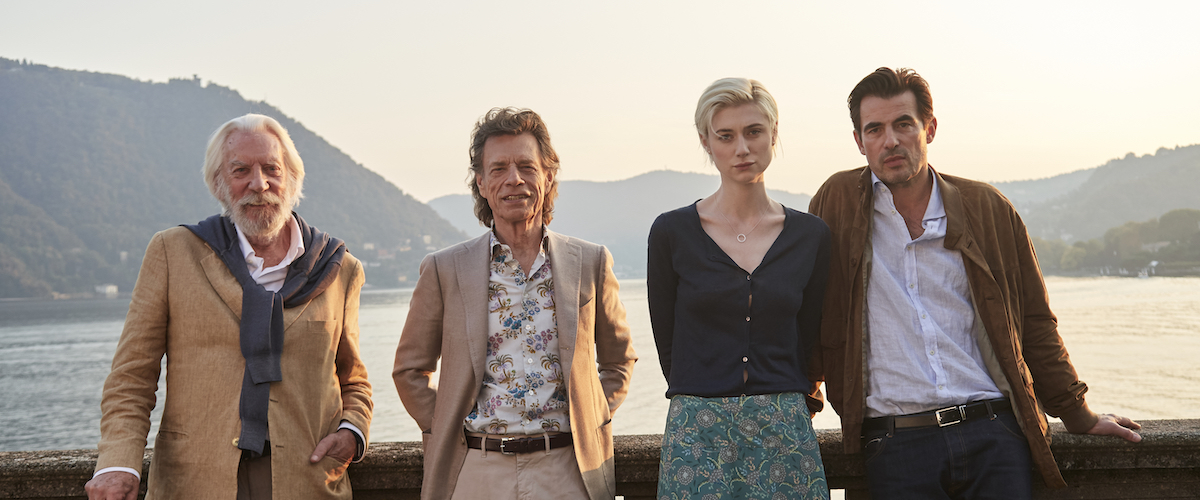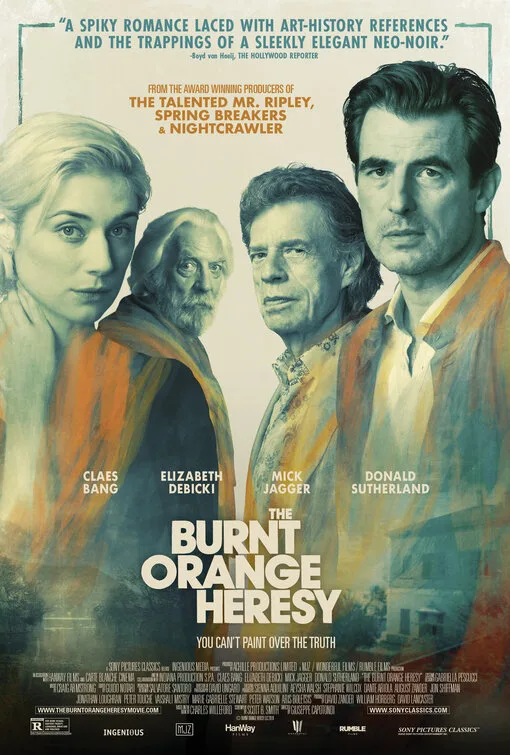"Never let a thing's worth obscure its value." This line spoken by the devious art dealer Joseph Cassidy, played by Mick Jagger, proves to be the unofficial theme of this beguiling but inert thriller from Giuseppe Capotondi. "The Burnt Orange Heresy" is a film about the subjective regard to which art is held that doesn't make good on the promise of its early, albeit sometimes painstakingly slow, scenes.
The cast is solid with Elizabeth Debicki playing the elegantly mysterious Berenice Hollis, whose barbed flirtation and unreadable disposition leaves you both intrigued and uneasy from the start. Claes Bang is perfect as James Figueras, the handsomely, ragged art critic who has been tortured by his unfulfilled dream of being a famed painter. His opening lecture, a monologue of deceitful symbolism and autobiographical detail, is a textbook moment of foreshadowing. James and Berenice create a clever, searing chemistry that ultimately lands as one of the film's best traits. These two were destined to create a menacing union—this is clear when we learn early on that she believes that truth is found by peering into the window of art, while he (as we learn in his opening scene) is stirred by the power of art to obscure the truth. Even as they fall into bed together, the stimulating tension between the pair is marred in deception.
The new lovers descend on Cassidy's lavish estate, whose desperation to obtain an elusive Jerome Debney (Donald Sutherland) work has led the affluent collector to house the demure artist on his breathtaking Lake Como estate. Cassidy's dire need to possess the artist's only salvageable work drives his villain-like complex when he offers James the opportunity of a lifetime: an exclusive interview with Debney—a career-defining move for a man fixated on his own life-long dreams of fame. The catch? James must use his Machiavellian ways to beguile himself into the artist's good graces in order to steal this long-awaited work.
Debney has been out of the public eye for half a century, and while the film creates an air of veneration and speculation, it's easy to be split on whether anyone in the art world would really still be eager for his work. Yet, that's the narrative engine on which the film is built and James' naked ambition makes him just desperate enough to take on an extraordinary assignment with deadly consequences.
Adapted from the 1971 Charles Willeford novel of the same name (whose other work was the inspiration for films like "Miami Blues" and "The Woman Chaser"), "The Burnt Orange Heresy" is clumsy in its second act with its humdrum dialogue wedged between an alluring first act and a hasty third act. With such a ripe opportunity to explore the contentious relationship between our ability to fabricate both art and love, the film is a seductive noir that, as a whole, comes up empty.



















